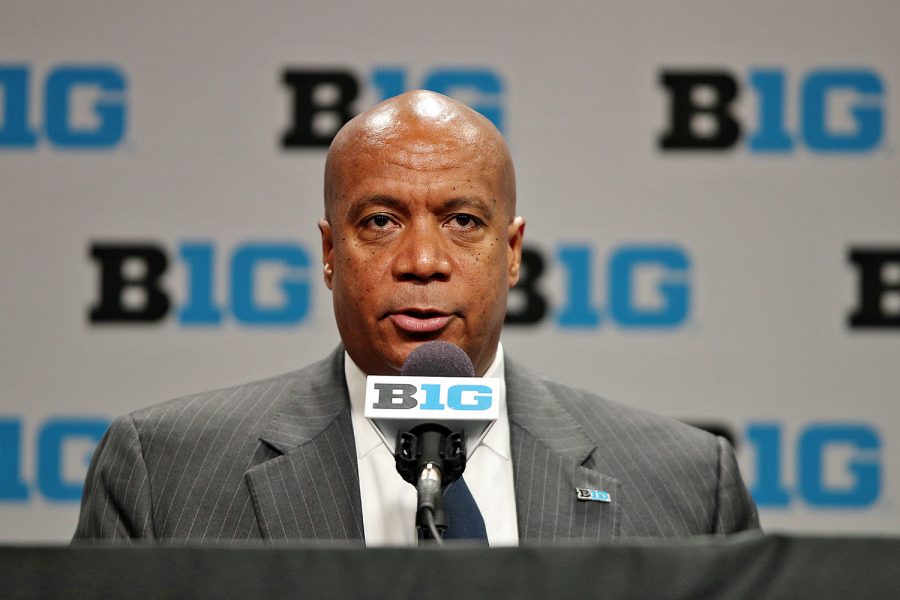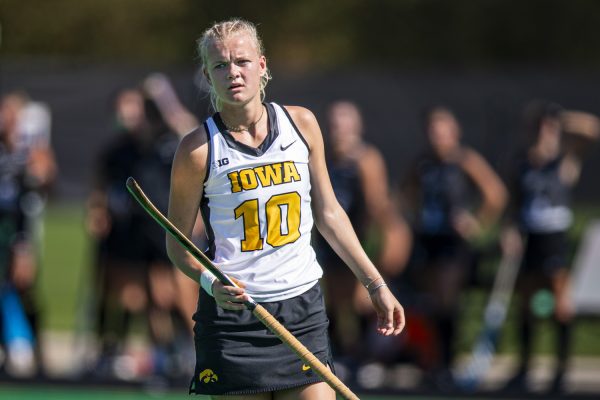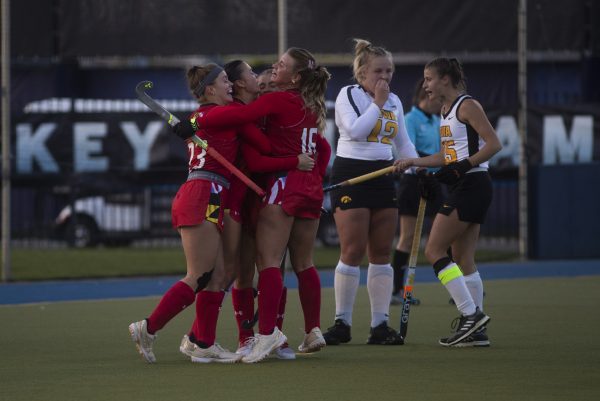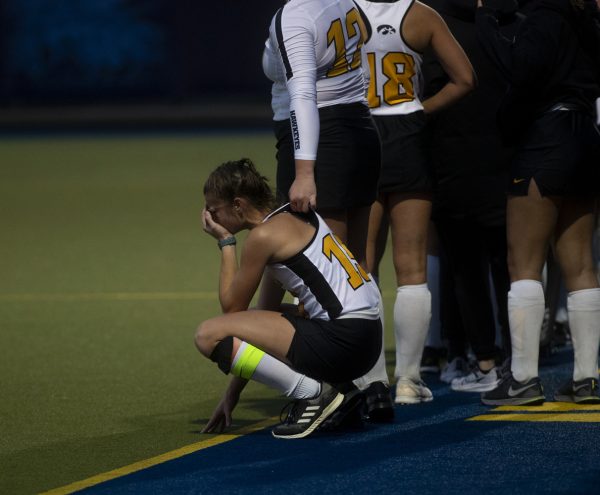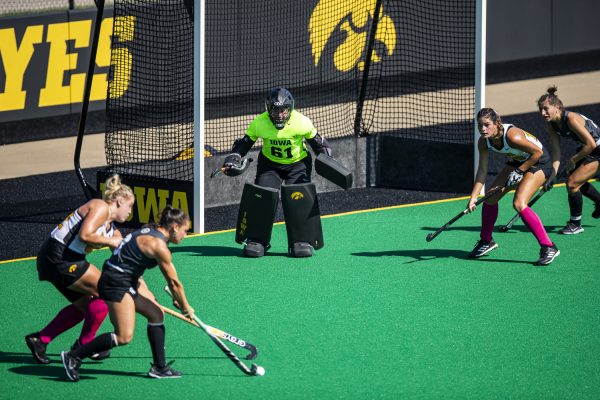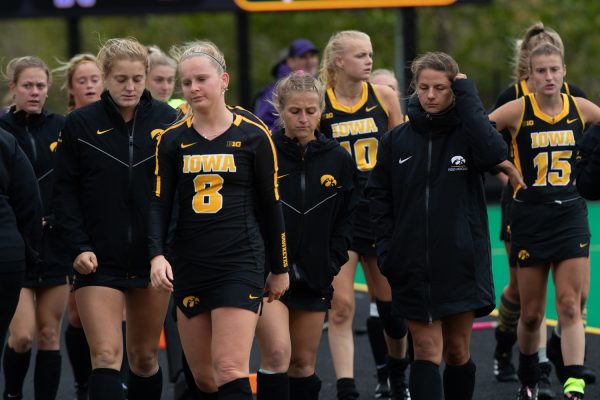Big Ten Commissioner Kevin Warren calls moving to conference-only fall seasons the ‘next logical step’
The first-year commissioner said there’s a chance fall sports are not played this year due to the COVID-19 pandemic.
Big Ten Conference Commissioner Kevin Warren addresses reporters regarding the cancellation of the 2020 Big Ten men's basketball tournament at Bankers Life Fieldhouse in Indianapolis, on Thursday, March 12, 2020.
July 9, 2020
Kevin Warren officially took over as the Commissioner of the Big Ten Conference Jan. 1, 2020, after Jim Delaney retired. It’s been a hectic first year on the job.
Warren has been forced to guide the Big Ten through the COVID-19 pandemic, which has included canceling the Big Ten Men’s Basketball Tournament and shutting down spring sports among other decisions. On Thursday, the conference announced its latest development.
If the Big Ten is able to participate in fall sports based on medical advice, it will move to conference-only schedules in those sports due to the COVID-19 pandemic.
RELATED: Big Ten announces conference-only schedules for fall sports
“We felt from a collaborative basis — being in communication on a regular basis with our chancellors, our presidents, our athletic directors, our head football coaches — that the time had come for us to make an announcement,” Warren said in an interview on the Big Ten Network. “This allows us to be able to take another step in this entire process. This is a complicated time, a complicated world that we’re living in with the COVID-19 pandemic. What we’re doing is relying on the expert advice of our medical advisors. We have our Big Ten Emerging Infectious Disease Committee, and also all of our other Big Ten doctors and trainers.
“We made a vow early on that, first and foremost, we would put the health, the safety, and the wellness of our student-athletes at the center of all of our decisions.”
“We made a vow early on that, first and foremost, we would put the health, the safety and the wellness of our student-athletes at the center of all of our decisions.”
Kevin Warren talks the timing of the @bigten‘s decision, and what comes next. pic.twitter.com/D0Y4GXXnAz
— Big Ten Network (@BigTenNetwork) July 9, 2020
When the Big Ten made its announcement, it said that part of the reasoning behind this decision was that it gave the conference the greatest flexibility to adjust its own operations throughout the season and make quick decisions in real-time based on the most current evolving medical advice and the fluid nature of the pandemic.
“It’s much easier if we’re just working with our Big Ten institutions,” Warren said. “From a scheduling standpoint, from a traveling standpoint, all of those issues that go into having our student-athletes compete. When you start working outside your conference, you put yourself in a position where there are enough issues that we are dealing with already. Then you add on top of it the issues of travel and the logistics associated with it. We felt that at the end of the day, this decision would allow us to do the right thing by our student-athletes, keep them at the forefront of all our decisions, and make sure that we create an environment to give us the best chance to play.”
While every sport in the conference will be impacted by the Big Ten’s announcement, a majority of the conversations are currently centered on how conference football schedules will look this fall.
Every Big Ten team is scheduled to play nine conference games. Dates and times, as well as the number of games, are still being discussed, Warren said. He expects more information to be made available in the next couple of weeks.
“This is really where the work begins,” Warren said. “To make sure that we get all of our testing protocols finalized. To make sure that we get all of our medical and operational procedures finalized. But then also start working with our network partners, and then from a scheduling standpoint to start working through various scenarios. Over the next week or so we’ll work through all of the scheduling issues that we will have to deal with.”
Shortly after the Big Ten’s announcement, the Stadium Network announced that the ACC is also expected to go to a conference-only schedule. The Athletic’s Nicole Auerbach reported that the Pac-12 is also likely to follow suit.
The Big 12 and SEC have not announced plans to move to a conference-only schedule so far.
While Warren said the move to eliminate nonconference opponents this fall gives the Big Ten the best chance to play, he also said people need to realize there’s a chance there are no sports this fall.
“We may not have sports in the fall,” Warren said. “We may not have a college football season in the Big Ten. We just wanted to make sure that this is the next logical step, to always rely on our medical experts, to keep our student-athletes at the center of all our decisions, and make sure they are as healthy as they possibly can be from a mental, physical, and emotional health and wellness standpoint.”



